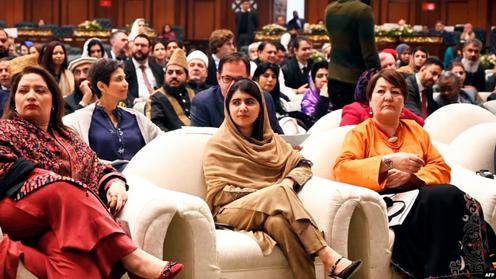At the international conference “Women’s Education in Islamic Societies: Challenges and Opportunities,” held in Pakistan on January 11–12, representatives of Islamic nations unanimously condemned restrictions on education for girls and women. The participants emphasized the importance of access to education for all, regardless of gender, and called for concerted efforts to eliminate barriers hindering girls' education, Khaama.com reports.
The conference brought together approximately 150 delegates from 47 countries, mostly Islamic, as well as international organizations. Attendees included religious leaders, ministers, ambassadors, human rights advocates, experts, and representatives from UNESCO, UNICEF, the World Bank, and the Organization of Islamic Cooperation (OIC).
The forum, supported by the Muslim World League, affirmed on its first day that there is consensus among religious leaders on women’s right to education. Representatives of the Taliban-led Afghan government, despite being invited, did not attend.
Nobel Peace Prize laureate Malala Yousafzai, speaking on the second day of the conference in Islamabad, condemned the Taliban's ban on female education, describing their actions as a violation of fundamental human rights. She noted that Afghanistan remains the only country in the world where girls are prohibited from attending school.
Yousafzai stated that the Taliban’s ban on women’s and girls’ education is «a crime disguised as cultural and religious justification.» She called on Muslim leaders to reject the legitimacy of the Taliban and to take a strong stand against their oppressive policies toward women.
Participants reiterated that education is a duty for both men and women in Islam. Denying this right marginalizes half of Afghanistan’s population, «perpetuates cycles of poverty and ignorance, undermines the country’s social and economic progress, and isolates it from the global community."
Chairman of Pakistan’s Senate, Yusuf Raza Gilani, urged governments, civil society, and international partners to collaborate in creating an environment that encourages, supports, and empowers girls to pursue education.
The conference concluded with the adoption of the Islamabad Declaration, a joint framework aimed at addressing key challenges in girls’ education. The declaration calls for gender-responsive policymaking, resource mobilization, and strengthened partnerships with international organizations to expand educational opportunities for girls in Muslim societies.
Since taking power in Afghanistan in August 2021, the Taliban has banned girls from secondary and higher education and imposed numerous restrictions on women’s rights and freedoms. These include prohibitions on women participating in sports, visiting parks, appearing in public without a male guardian, going outside without wearing a hijab, talking to other women, and praying or reciting the Quran aloud.










